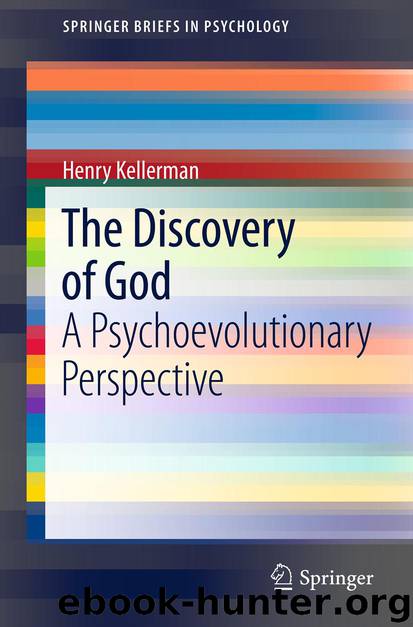The Discovery of God by Henry Kellerman

Author:Henry Kellerman
Language: eng
Format: epub
Publisher: Springer New York, New York, NY
The Cohesive Group
The issue of group cohesion and its ability to align and absorb membership agreement with respect to the goals of the group as well an analysis of the psychosocio composition of such cohesive groups has been examined by a number of authors (Kellerman, 1979, 1981; Lifton, 1979; Lott & Lott, 1965; Redl, 1942). Generally, all authors conclude that the aims of the group within a strong cohesive structure can generate singular purpose in the membership to do whatever it takes in order to accomplish group goals. And such zeal when directed toward others usually produces results that galvanize cooperation within the membership. When such a group becomes a punitive one (blame-oriented) toward identifiable others, then any action toward those “others” can, and most often will, cause destructive outcomes—and usually of course, with an underlying, permeating, and punitive sense of righteousness. As stated earlier, such is the historical record of religious wars as well as attendant political strife.
In this respect, the cohesion of groups can be examined on the basis of what could be termed the specific deep punitive structures that can exist within any group’s evolving or existing culture—including, but not solely limited to religious cultures. And the essence of a punitive group culture leads to the creation of a blame psychology with its ultimate justification that occurs either by invoking God’s will and rightness or by some other adoration of an equivalent God-like ideological figure who is idealized and/or feared.
As the God–idolatry that characterizes most groups becomes heightened, so too does the cohesion of the group correspondingly increase. This idolatry increases even to the point beyond cohesion—that of adhesion, the net effect of which is to affirm and validate the superiority of a particular God—or leader. Essentially it is the psychological/emotional institutionalization of God’s presence (symbolized by the presence of the group’s leader) that screams the slogan: “God is great, God is real, and he is ours!” And it is the “ours” (the group) that becomes the validation of one’s belief system, further reinforcing the accumulation of cohesion.
The properties of such a high-cohesion (adhesion) group is thought to be composed of affiliational superego needs of members; that is to say, the sense of which behaviors deserve reward, or which punishment, or condemnation. In addition, leadership contributions to the superego alignment of the group (what is considered good or bad) significantly influence general group performance. And finally, the nature of the group’s development and the evolution of its particular myths and legends further support the group’s distinct identity. Thus, in summary, such groups seek Gods, or charismatic leaders to be “Godheads” and such leaders support the group ethos regarding what is good and what is bad; what needs to be rewarded, and through blame, what needs to be punished.
Download
This site does not store any files on its server. We only index and link to content provided by other sites. Please contact the content providers to delete copyright contents if any and email us, we'll remove relevant links or contents immediately.
Rewire Your Anxious Brain by Catherine M. Pittman(18630)
Talking to Strangers by Malcolm Gladwell(13339)
The Art of Thinking Clearly by Rolf Dobelli(10406)
Mindhunter: Inside the FBI's Elite Serial Crime Unit by John E. Douglas & Mark Olshaker(9310)
Becoming Supernatural by Dr. Joe Dispenza(8194)
Change Your Questions, Change Your Life by Marilee Adams(7731)
Nudge - Improving Decisions about Health, Wealth, and Happiness by Thaler Sunstein(7689)
The Road Less Traveled by M. Scott Peck(7581)
The Lost Art of Listening by Michael P. Nichols(7485)
Mastermind: How to Think Like Sherlock Holmes by Maria Konnikova(7312)
Enlightenment Now: The Case for Reason, Science, Humanism, and Progress by Steven Pinker(7303)
Win Bigly by Scott Adams(7181)
The Way of Zen by Alan W. Watts(6589)
Daring Greatly by Brene Brown(6500)
Big Magic: Creative Living Beyond Fear by Elizabeth Gilbert(5739)
Grit by Angela Duckworth(5592)
Ego Is the Enemy by Ryan Holiday(5406)
Men In Love by Nancy Friday(5225)
The Laws of Human Nature by Robert Greene(5154)
